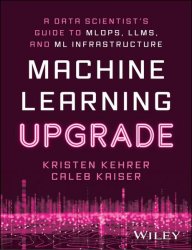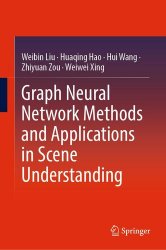Автор: Hiroshi Ishiguro, Fuki Ueno, Eiki Tachibana
Издательство: Springer
Год: 2025
Страниц: 358
Язык: английский
Формат: pdf (true)
Размер: 21.4 MB
With the advances in the Internet, AI, and robot technologies, our daily lives and professional environments have increasingly incorporated a variety of digital media. My research and development efforts have been centered around a new, emerging type of medium: avatars. Avatars, which include both teleoperated robots and computer-generated (CG) agents, enable users to operate in physically distant locations or even virtual environments, such as the metaverse. Attracted by their convenience and the broad spectrum of possibilities, various organizations, including companies and hospitals, have explored utilizing robot avatars. However, despite the initial enthusiasm, the widespread adoption experienced only a modest surge and failed to firmly establish itself. The large-scale societal shift toward telework has clearly highlighted avatar technology’s potential to reshape how we work, communicate, and interact within a rapidly evolving digital landscape.
I am currently leading a project under the Moonshot Research and Development Program Goal 1, “The Realization of a Society in Which Human Beings Can Be Free from the Limitations of Body, Brain, Space, and Time by 2050”. It was launched in 2020 by the Japan Science and Technology Agency (JST) with the aim to empower individuals from diverse backgrounds and with various responsibilities, such as care-giving or parenting, to pursue activities that align with their lifestyles, free from the constraints of their bodies, physical space, and the limitations of their brains and time. Our project, named “The Realization of an Avatar-Symbiotic Society Where Everyone Can Perform Active Roles Without Constraint,” focuses on developing Cybernetic Avatars (CAs), a type of avatar that are designed to enhance people’s physical, cognitive, and perceptual abilities through the integration of advanced technologies such as robotics and AI. Thus, our project aims to contribute to the realization of Goal 1, facilitating a world where people are liberated from the confines of space and time.
In education, a home class will be done by a teacher using a CA. Typical instruction can be provided by the CA’s autonomous AI functions, and unexpected questions can be handled by the teacher via teleoperation, allowing him or her to operate many CAs simultaneously. However, students from all over the world can gather at the school using CAs and engage in various discussions.
The same will be true at work. Work can be done at home by inviting experts via CAs to the home, and meetings can be held at the office with members from around the world. This way of working will minimize commuting and allow people to work freely.
In medical care, simple medical examinations, such as those for a cold, will be performed at home by a doctor using a CA. This will greatly reduce the risk of spreading infectious diseases. However, in city hospitals, various specialists will examine patients using CAs, so even a small hospital in a city can function as well as a general hospital.
As this happens, more and more people will use CAs as conversation partners in their daily lives, and they will attend parties, sports, travels, etc., as CAs. In other words, everyone, including the elderly and the disabled, will be able to participate freely in a variety of activities using a large number of CAs with expanded physical, cognitive, and perceptual abilities that surpass those of ordinary people. They will be able to work and study anywhere and anytime, minimizing commuting to and from work and school and allowing them to have more free time.
This book stems from the JST’s Moonshot R&D project described above, presenting a vision of a future where avatars play an integral role in shaping the fabric of our interconnected society. It introduces our ongoing efforts to advance avatar technology and is structured into nine chapters. Chapter 1 discusses the potentially revolutionary impact of CAs as a new medium of communication, liberating individuals from physical barriers and creating more flexible work environments. Chapters 2–4 present developments in CAs with advanced autonomous functionality. Chapters 5 and 6 discuss the creation of a CA platform that connects multiple operators and CAs. Chapter 7 explores the physiological and neuroscientific effects of avatars and other media on operators and users. Finally, Chaps. 8 and 9 discuss the societal implementation of CAs.
- Presents cutting-edge technologies for the development of Cybernetic Avatars
- Advances the Avatar-Symbiotic Society to liberate individuals from the limitations of physical and temporal constraints
- Inspires readers to contemplate the future technologies that will be realized in 2050
Скачать Cybernetic Avatar
[related-news] [/related-news]
Комментарии 0
Комментариев пока нет. Стань первым!















